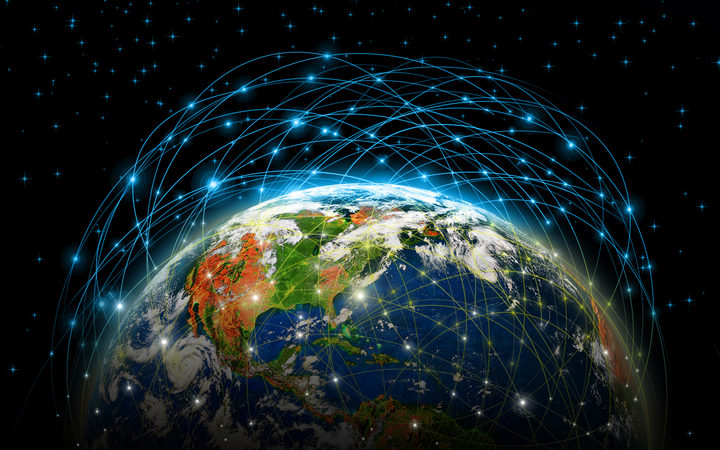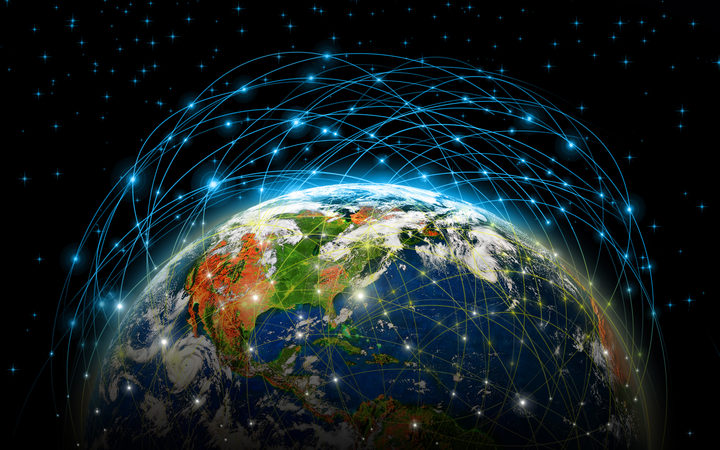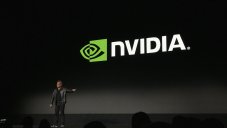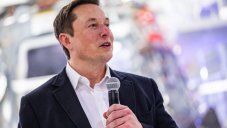A Chinese Company Will Offer Free Wi-Fi To Everyone On Earth
Indira Datta - Dec 02, 2018

According to the plan, China's Internet technology company will put into space a constellation which contains 272 satellites by 2026. These satellites are capable of broadcasting free Wi-Fi to the whole world.
- Mumbai 2020 Power Outage Might Be A China's Cyberattack, India Official Claims
- TikTok China Banned Users From Making Videos To Show Off Wealth
- Entrepreneur Spent 1 Year Building 600-Square-Meter Floating Mansion
In the future, people may not be worried about the lack of Wi-Fi on the streets and at places where 3G does not work because a Chinese company has announced its plans to offer free Wi-Fi for people around the world and to rival with Space X and Google. According to the proposal, China's internet technology company will put into space a constellation consisting of 272 satellites by 2026. These satellites capable of broadcasting free Wi-Fi to the whole world.

The company is called LinkSure Network, which was established in 2013 in Shanghai. According to the company's information published on its website, it operates primarily in the field of global mobile Internet, in particular providing free internet through its applications and services.
LinkSure currently has over 900 million users in more than 223 different regions and countries. They mostly use the Wi-Fi Master Key mobile application to access Wi-Fi in their neighborhoods without entering passwords.
The first satellite to be launched is at the Jiuquan Satellite Launch Center in Gansu province in Northwest China. And so by 2020, 10 satellites will be launched into space. There will be 272 satellites in total, and all will be entirely launched in space by 2026. Details of the first satellite to be launched in space on this constellation were announced on 27 November.

Wang Jingying, the managing director of LinkSure Network, has announced that the company will invest 3 billion yuan (about $431.4 million) in a plan to put a satellite constellation into space. Although this is a huge amount, she believes that the company can achieve its goals through business applications and different modes are giving very positive results.
According to UN research, by the end of 2017, the world still had 3.9 billion people not connected to the Internet. Due to the terrain, many places in the world don't have telecommunication networks so people in that area can't access Wi-Fi or 3G. If this satellite constellation plan is successfully deployed, people from everywhere of the world can access and connect to the Internet for all purposes.
China's LinkSure is not the only company targeting free Wi-Fi for the planet. Many companies such as Telesat, SpaceX, Google, and OneWeb have plans to launch satellites to make it possible for everyone to access the Internet everywhere for free.
An early statement of Goldman Sachs said that trading in the commercial space market would be a very profitable long-term opportunity, worth billions of billions of dollars in 20 years. The aerospace industry is expected to reach $ 2.7 trillion by 2045, according to forecasts by Merrill Lynch Bank of America.
Huang Zhicheng, an aerospace technologist, commented that investing in these projects was not the same as investing in economic projects that brought in immediate profits. In his opinion, investors should be patient even though profits have not come in for many years as this is still a potential market.
Every developed country has its own facilities for researching such projects. The US Global Positioning System (GPS) is a rival to China's BeiDou Navigation Satellite System (BDS), which is currently under construction. Also, there are the Global Navigation Satellite System (GLONASS) of Russia, Quasi-Zenith Satellite System (QZSS) of Japan, Galileo Positioning System of the European Union.
India is also building its own navigation system called the Indian Regional Navigation Satellite System (IRNSS). It is also known as Navigation with Indian Constellation (NAVIC). This center was opened to serve the Indians in the area of 1500 km from the boundary of the headquarter. This is also the first area of its operation and is likely to expand in the future.
Featured Stories

ICT News - Feb 19, 2026
Escalating Costs for NVIDIA RTX 50 Series GPUs: RTX 5090 Tops $5,000, RTX 5060 Ti...

ICT News - Feb 18, 2026
Google's Project Toscana: Elevating Pixel Face Unlock to Rival Apple's Face ID

Mobile - Feb 16, 2026
Xiaomi Launches Affordable Tracker to Compete with Apple's AirTag

ICT News - Feb 15, 2026
X Platform Poised to Introduce In-App Crypto and Stock Trading Soon

ICT News - Feb 13, 2026
Elon Musk Pivots: SpaceX Prioritizes Lunar Metropolis Over Martian Colony

ICT News - Feb 10, 2026
Discord's Teen Safety Sham: Why This Data Leak Magnet Isn't Worth Your Trust...

ICT News - Feb 09, 2026
PS6 Rumors: Game-Changing Specs Poised to Transform Console Play

ICT News - Feb 08, 2026
Is Elon Musk on the Path to Becoming the World's First Trillionaire?

ICT News - Feb 07, 2026
NVIDIA's Gaming GPU Drought: No New Releases in 2026 as AI Takes Priority

ICT News - Feb 06, 2026
Elon Musk Clarifies: No Starlink Phone in Development at SpaceX
Read more

Mobile- Feb 17, 2026
Anticipating the Samsung Galaxy S26 and S26+: Key Rumors and Specs
The Samsung Galaxy S26 series is on the horizon, sparking excitement among tech enthusiasts.

ICT News- Feb 19, 2026
Escalating Costs for NVIDIA RTX 50 Series GPUs: RTX 5090 Tops $5,000, RTX 5060 Ti Closes in on RTX 5070 Pricing
As the RTX 50 series continues to push boundaries in gaming and AI, these price trends raise questions about accessibility for average gamers.

ICT News- Feb 18, 2026
Google's Project Toscana: Elevating Pixel Face Unlock to Rival Apple's Face ID
As the smartphone landscape evolves, Google's push toward superior face unlock technology underscores its ambition to close the gap with Apple in user security and convenience.
Comments
Sort by Newest | Popular